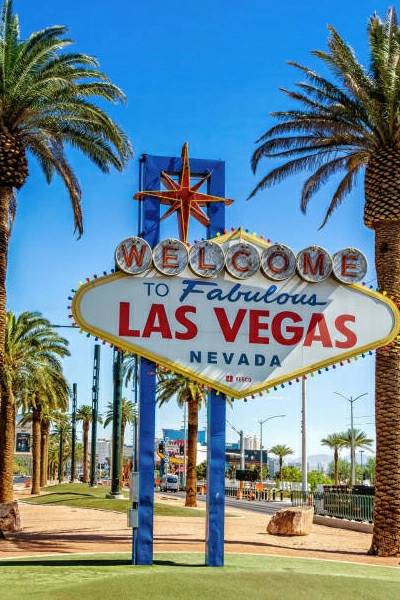An Australia tour can offer a diverse range of
experiences, from vibrant cities to stunning natural wonders. Here are some
highlights you might consider for an Australia tour. Sydney Explore the iconic walk across the Sydney Harbour Bridge.
Take a unique view for Blue Mountains of
the city. Another City of Australia Melbourne
Enjoy the cultural scene in Melbourne with its art galleries, coffee shops, and
street art. Take a stroll through the Royal Botanic Gardens and explore the
laneways filled with shops and restaurants. Great Ocean Road Drive along the
scenic Great Ocean Road in Victoria, marveling at the Twelve Apostles, Loch Ard
Gorge, and other stunning coastal formations. Gold Coast Enjoy the sunny beaches and visit theme parks like
Dreamworld and Warner Bros. Movie World on the Gold Coast.
Australia highlights
1
Day 1 : Arrive Melbourne
Arrive Melbourne airport and transfer to hotel. Check into hotel. Day free at leisure. Overnight in Melbourne. (Note: Standard check in time is 1400 hours, will request for early check in).
2
Day 2 : Melbourne
Breakfast at hotel. Today proceed for Full Day Great Ocean
Road Tour. Come and explore Victoria’s Surf Coast and more must-see
destinations near Melbourne. Enjoy a 12 Apostles tour, visit picturesque cities
and townships along this world-famous coastline, and soak up the history of
sites like the Loch Ard Gorge. There’s much more to the Great Ocean Road than
just the photo opportunities, come and see for yourself. Highlights of the
tour:
• Enjoy morning tea on the picturesque beaches of
Victoria’s Surf Coast
• Scenic drive along the Great Ocean Road
• See the Twelve Apostles in Port Campbell National Park
• Visit the Loch Ard Gorge, the site of the Loch Ard shipwreck
• See koalas in their natural habitat in the eucalyptus forests of the Kennett
River township
• Visit the charming coastal township of Apollo Bay. Overnight in Melbourne.
3
Day 3 : Melbourne
Breakfast at hotel. Today afternoon proceed for Philip
Island & Penguin Parade Tour. The tour starts with a drive south-east from
Melbourne to reach Moonlit Sanctuary Wildlife Conservation Park where you will
meet endangered species, kangaroos, wallabies and koalas plus an array of colorful
birds and reptiles. Your journey then leads onto Phillip Island, the home of
the Australian Motorcycle Grand Prix and the famous Little Penguins. Upon
arrival on the Island, depending on the time of year and your interests, you
will visit Woolamai beach to see surfers riding the waves. During the daylight
savings months, you will travel to the town of Cows where you will have free
time for dinner. In the winter months you can have something to eat at the
Penguin Parade Visitor Centre. Finally, a trip to Phillip Island is not
complete without its black tie gala event: the Penguin Parade.Head to the
Visitor Centre to shop, have a coffee and meander along the boardwalk to the
viewing platform where you will see the little penguins come ashore, decked out
in their tuxedos as they hurry off to find their burrows. Overnight in
Melbourne.
4
Day 4 : Melbourne - Gold Coast
After breakfast, check out
from hotel and transfer to the airport to board your flight to Brisbane. Arrive
and transfer to hotel in Gold Coast & check in. Overnight in Gold Coast.
5
Day 5 : Gold Coast
Breakfast at
hotel. Today proceed for Full Day Sea World Tour. Get up close and personal
with marine life wonders and experience a whole world of exciting rides, shows,
laugh along with the crowd as the clever sea lions solve an environmental crime
in a wonderful new adventure – Fish detectives. Experience, an enchanting new
interactive Dolphin Show and much more! Overnight in Gold Coast.
6
Day 6 : Gold Coast
Breakfast at
hotel. Today proceed for Full Day Movie World Tour. Where movie magic happens
every day. Meet your favorite stars and enjoy all the behind-the Scene actions,
comedy stunts along with exhilarating rides, shows and attractions like the new
Superman Escape, the suspended roller coaster ‘Lethal Weapon’ – where you will
see your feet Against the sky, encounter five complete upside-down experiences.
Also have a chance of Meeting and taking off on the ultimate Batman adventure
ride. Continue your fun-filled day with your favorite Looney tunes characters
at ‘Looney Village’. Overnight in Gold Coast.
7
Day 7 : Gold Coast - Sydney
After
breakfast, check out from hotel and transfer to the airport to board your
flight to Sydney. Arrive Sydney and transfer to hotel & check in. Overnight
in Sydney.
8
Day 8 : Sydney
Breakfast at
hotel. Today proceed for Big Bus Hop on Hop off. Experience all the excitement
of Australia’s famous harbour city aboard the Big Bus Sydney and Bondi Beach,
double decker buses. Both tours are included in the one flexible sightseeing
Hop-on Hop-off ticket. The Sydney tour is the perfect introduction to this
dynamic city, showcasing the iconic landmarks including the impressive arch of
the Sydney Harbour Bridge, the glorious Sydney Opera House and the sparkling
waters of Sydney and Darling Harbour. To complement the Sydney tour, the Bondi
Beach tour is a great introduction to Australia’s beach culture. There are over
30 stops in the two tours to hop off and experience the diversity of Sydney’s
lifestyle. Both tours feature an entertaining and informative audio commentary
available in 8 languages. Overnight in Sydney.
9
Day 9 : Sydney
Breakfast at
hotel. Today proceed for Blue Mountains Tour. Your tour includes the following:
Entry into Feather Dale Wildlife Park, a visit to Echo Point where you can see
the Three Sisters Rock Formation, 3 Rides at Scenic World (includes a ride on
the Cableway, Skyway and Railway), A River Cruise into Darling Harbor or
Circular Quay where your tour concludes. Overnight in Sydney.
10
Day 10 : Sydney - India
Breakfast at
hotel. Today check out to the hotel explore some nearby areas and transfer to
the airport to board your flight back to India.
- 09 Nights Accommodation at City Centre hotels
- Daily breakfast at hotel as per above details
- Australia Visa fee
- Return Airport transfers on Private basis
- Sydney Big Bus Hop on Hop City Tour
- Blue Mountains Tour including rides on SIC
- Great Ocean Road Eco Tour on SIC
- Philip Island & Penguin Tour on SIC
- Full Day Sea-World Tour on SIC
- Full Day Movie-World Tour on SIC
- GST
- SIC means Seat In Coach
Inclusions
- Flights
- Lunches & Dinners until and unless mentioned
- Any Items Of Personal Nature Like Telephone, Beverages, Laundry etc. or any other service that is not shown in the Inclusion above
- Hotel drops off in certain tours
- 20% TCS (Fully Claimable While Filing ITR))
Exclusions
AUSTRALIA
Australia stands as the singular nation globally that spans an entire continent, ranking among the largest countries on Earth.
FUNT FACT'S
Official Name: Commonwealth of Australia
Form of Government: Federal parliamentary democracy; Commonwealth realm
Capital: Canberra
Population: 26,609,479
Official Language: English
Money: Australian Dollar
Area: 2,969,906 square miles (7,692,024 square kilometers)
Major Mountain Ranges: Great Dividing Range, Macdonnell Ranges
Major Rivers: Murray-Darling, Murrumbidgee, Lachlan
GEOGRAPHY
Australia stands out as the sole nation encompassing an entire continent, ranking among the largest countries globally. Despite its abundance in natural resources and fertile land, over one-third of Australia comprises arid deserts.
The majority of Australian urban centers and agricultural areas are situated in the southwest and southeast regions, where the climate is more temperate. In the northeast, lush rainforests flourish. The renowned outback, representing remote rural expanses, features the nation's expansive deserts characterized by scorching temperatures, scarce water, and minimal vegetation.
Traversing the eastern and southeastern periphery of Australia is the Great Dividing Range, a 2,300-mile (3,700-kilometer) mountainous expanse. This range directs water flow into Australia's crucial rivers and the Great Artesian Basin, recognized as the world's largest groundwater reservoir.
PEOPLE & CULTURE
Australia stands as one of the globe's most culturally diverse countries, with almost a quarter of its residents originating from various parts of the world. The immigrant population hails not only from the United Kingdom and other European nations but also from China, Vietnam, North Africa, and the Middle East.
The nation's warm and sunny climate, coupled with vast open spaces, fosters a collective affinity for outdoor activities among its inhabitants. Australians exhibit a fervent passion for sports, engaging in a wide array of activities such as swimming, surfing, sailing, tennis, soccer, cricket, rugby, and their unique creation, Australian rules football.
NATURE
Australia possesses an extraordinary ecosystem, shaped by its isolated location. Consequently, it harbors a plethora of animal species found exclusively within its borders, such as the platypus, kangaroo, echidna, and koala. The country takes extensive measures to safeguard its unique flora and fauna, boasting 516 national parks.
An awe-inspiring natural wonder in Australia emerges dramatically, resembling an enormous whale's back against the backdrop of the flat red-soil desert known as the Red Center. This sacred site, named Uluru, stands at the heart of the nation, reaching a height of 1,100 feet (335 meters), making it the largest rock globally.
Australia's diverse wildlife includes some of the world's most lethal species. The eastern regions host 36 varieties of venomous funnel-web spiders, while the country is home to 20 types of venomous snakes, including the taipan, a swift and aggressive serpent capable of delivering repeated fatal bites within minutes.
Various rainforest types contribute to Australia's ecological richness. Tropical rainforests, concentrated mainly in the northeast, boast the highest biodiversity. Subtropical rainforests thrive along the mid-eastern coast, while broadleaf rainforests flourish in the southeast and on Tasmania's island.
GOVERNMENT
Functioning as a Commonwealth of the United Kingdom, Australia currently has the British monarch as its head of state. A considerable number of Australians advocate for severing ties with Britain and transitioning to a republic. Despite a close vote in 1999 where Australians opted to remain connected to the UK, the debate on this matter persists.
Australia plays a crucial role as a major exporter of agricultural products, including wool, wheat, beef, fruit, and wine. Additionally, the nation boasts abundant reserves of minerals and metals, ranking as the world's fourth-largest producer of gold.
HISTORY
Approximately 50,000 years ago, Aboriginal people migrated to Australia, possibly traversing land bridges exposed during periods of lower sea levels, most likely originating from Asia. Adapting to the challenging conditions of the outback, the resilient Aborigines developed a unique way of life.
The Dutch explorers made the first recorded landing in Australia in 1606, with British settlement commencing in 1788. A significant portion of the settlers consisted of convicts dispatched to Australia as a form of punishment. Initially, there was a brief period of peaceful coexistence between the newcomers and the Aboriginal population. However, disputes over land ownership led to conflicts.
The year 1851 marked a pivotal moment when gold was discovered in Australia. This triggered a rush for wealth, attracting thousands of immigrants and resulting in the establishment of six distinct colonies by 1859. Finally, in 1901, these colonies united to form a British Commonwealth.






Add a review